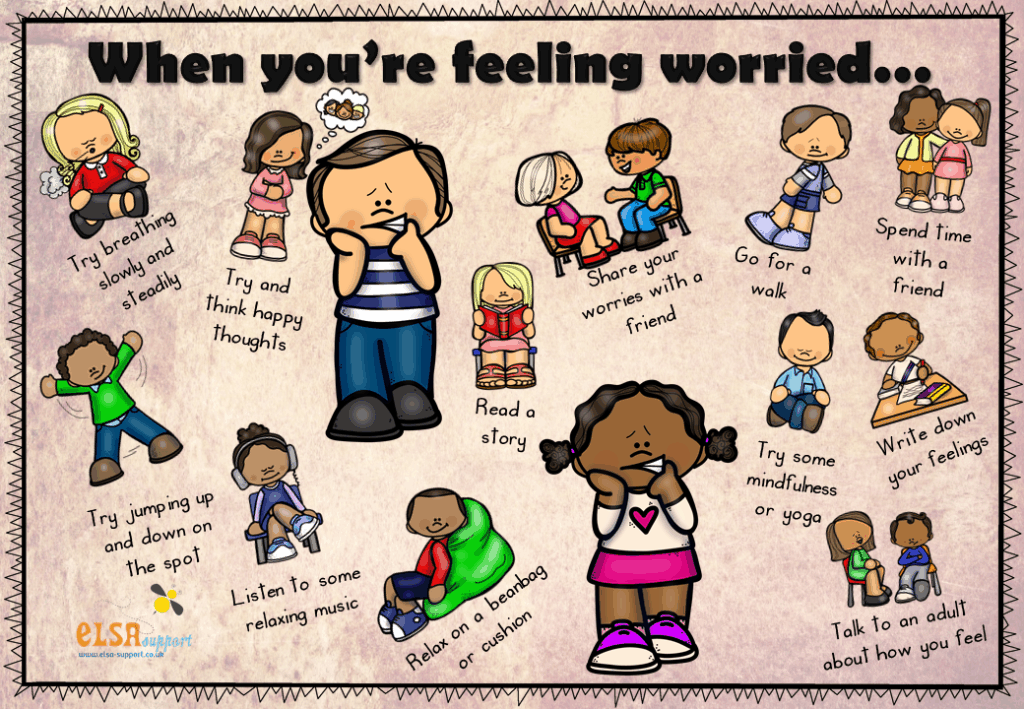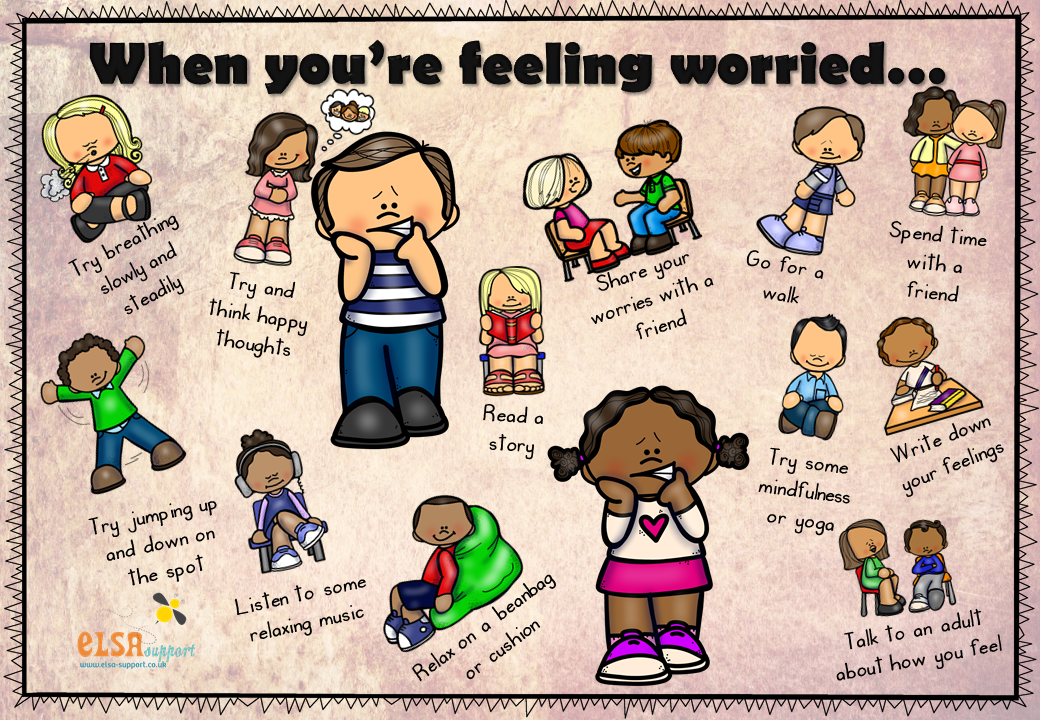
I’m Worried: Understanding Anxiety, Its Causes, and Coping Mechanisms
The phrase “I’m worried” is a common expression, often uttered casually in response to various stressors. However, when these worries become persistent, excessive, and difficult to control, they may indicate a deeper issue: anxiety. This article delves into the complexities of anxiety, exploring its potential causes, symptoms, and effective coping strategies. Understanding the nuances of anxiety is crucial for both those experiencing it and those seeking to support loved ones who are struggling.
Defining Worry and Anxiety
Worry is a natural human emotion. It’s the mental process of dwelling on potential problems or negative outcomes. It serves an evolutionary purpose, prompting us to prepare for potential threats. However, anxiety extends beyond normal worry. It’s characterized by excessive, persistent, and often irrational fears and apprehensions. Anxiety can manifest in both psychological and physical symptoms, significantly impacting daily life.
What Does It Mean When You Say “I’m Worried”?
When someone says “I’m worried,” it signals a state of mental unease and concern. The intensity and duration of this worry can vary significantly. It could be a fleeting concern about an upcoming deadline or a persistent apprehension about a loved one’s well-being. Understanding the context and accompanying symptoms is crucial to differentiating between normal worry and a potential anxiety disorder. It’s important to acknowledge and validate these feelings. If someone you know says “I’m worried”, offering support and a listening ear can make a significant difference.
Potential Causes of Anxiety
Anxiety is a multifaceted condition with a range of potential contributing factors:
- Genetics: A family history of anxiety or other mental health disorders can increase an individual’s susceptibility.
- Brain Chemistry: Imbalances in neurotransmitters, such as serotonin and dopamine, can contribute to anxiety symptoms.
- Environmental Factors: Stressful life events, trauma, and chronic exposure to negative environments can trigger or exacerbate anxiety.
- Medical Conditions: Certain medical conditions, such as thyroid problems or heart conditions, can mimic or worsen anxiety symptoms.
- Personality Traits: Individuals with perfectionistic tendencies, high sensitivity, or a tendency toward negative thinking may be more prone to anxiety.
Common Symptoms of Anxiety
Anxiety manifests differently in each individual, but some common symptoms include:
- Excessive Worry: Persistent and uncontrollable thoughts about various topics.
- Restlessness: Feeling agitated, on edge, or unable to relax.
- Fatigue: Feeling tired or drained, even after adequate rest.
- Difficulty Concentrating: Trouble focusing or remembering things.
- Irritability: Feeling easily annoyed or frustrated.
- Muscle Tension: Experiencing aches, stiffness, or soreness in muscles.
- Sleep Disturbances: Difficulty falling asleep, staying asleep, or experiencing restful sleep.
- Panic Attacks: Sudden episodes of intense fear accompanied by physical symptoms such as rapid heart rate, shortness of breath, and dizziness.
Types of Anxiety Disorders
Several distinct anxiety disorders exist, each with its own specific diagnostic criteria:
- Generalized Anxiety Disorder (GAD): Characterized by persistent and excessive worry about a variety of topics.
- Social Anxiety Disorder (SAD): Marked by intense fear of social situations and scrutiny by others.
- Panic Disorder: Involves recurrent and unexpected panic attacks.
- Specific Phobias: Characterized by intense fear of specific objects or situations.
- Obsessive-Compulsive Disorder (OCD): Involves intrusive thoughts and repetitive behaviors.
- Post-Traumatic Stress Disorder (PTSD): Develops after experiencing or witnessing a traumatic event.
Coping Mechanisms for Anxiety
Several effective coping mechanisms can help manage anxiety symptoms:
- Cognitive Behavioral Therapy (CBT): A type of therapy that helps individuals identify and change negative thought patterns and behaviors.
- Mindfulness Meditation: A practice that involves focusing on the present moment to reduce stress and anxiety.
- Relaxation Techniques: Techniques such as deep breathing, progressive muscle relaxation, and yoga can help calm the body and mind.
- Regular Exercise: Physical activity releases endorphins, which have mood-boosting effects.
- Healthy Diet: Eating a balanced diet and avoiding processed foods, caffeine, and alcohol can help regulate mood and energy levels.
- Sufficient Sleep: Getting enough sleep is crucial for both physical and mental health.
- Social Support: Connecting with friends, family, or support groups can provide a sense of belonging and reduce feelings of isolation.
- Medication: In some cases, medication may be necessary to manage anxiety symptoms. Antidepressants and anti-anxiety medications are commonly prescribed.
When to Seek Professional Help
While self-help strategies can be effective for managing mild to moderate anxiety, it’s essential to seek professional help if:
- Anxiety symptoms are severe and interfere with daily life.
- Self-help strategies are not effective.
- You have thoughts of harming yourself or others.
- You are experiencing panic attacks.
- Anxiety is accompanied by other mental health symptoms, such as depression.
Supporting Someone Who Is Worried
If someone you know is struggling with anxiety, here are some ways you can offer support:
- Listen actively and empathetically. Create a safe space for them to share their feelings without judgment.
- Validate their feelings. Acknowledge that their worries are real and significant.
- Encourage them to seek professional help. Offer to help them find a therapist or psychiatrist.
- Offer practical support. Help them with tasks that are causing them stress.
- Be patient and understanding. Recovery from anxiety is a process, and there will be ups and downs.
- Educate yourself about anxiety. Understanding the condition can help you provide better support.
The Importance of Self-Care When You’re Worried
When you’re constantly saying “I’m worried,” it’s easy to neglect your own well-being. Prioritizing self-care is crucial for managing anxiety and preventing burnout. Make time for activities that you enjoy and that help you relax. This could include reading, spending time in nature, listening to music, or practicing a hobby. Remember that taking care of yourself is not selfish; it’s essential for your overall health and well-being. If you find yourself frequently saying “I’m worried,” consider incorporating regular self-care practices into your routine.
“I’m Worried” and the Impact on Relationships
Chronic worry can strain relationships. When someone is constantly anxious, it can be challenging for their loved ones to provide support and understanding. Open communication is key to navigating these challenges. Express your feelings honestly and respectfully, and be willing to compromise. Consider seeking couples therapy or family therapy to address relationship issues related to anxiety. Remember that anxiety is a treatable condition, and with the right support, relationships can thrive despite the challenges.
Long-Term Outlook for Anxiety
With appropriate treatment and support, most individuals with anxiety can experience significant improvement in their symptoms and quality of life. Long-term management often involves a combination of therapy, medication, and lifestyle changes. It’s important to remember that recovery is a process, and there may be setbacks along the way. However, with persistence and self-compassion, it’s possible to live a fulfilling and meaningful life despite anxiety. If you find yourself consistently saying “I’m worried,” know that you’re not alone and that help is available. [See also: Understanding Panic Attacks] [See also: Coping with Social Anxiety] [See also: Finding the Right Therapist] [See also: The Benefits of Mindfulness Meditation]
In conclusion, the phrase “I’m worried” can be a signal of underlying anxiety. By understanding the causes, symptoms, and coping mechanisms associated with anxiety, individuals can take proactive steps to manage their mental health and seek appropriate support when needed. Remember to prioritize self-care, communicate openly with loved ones, and seek professional help when necessary.

